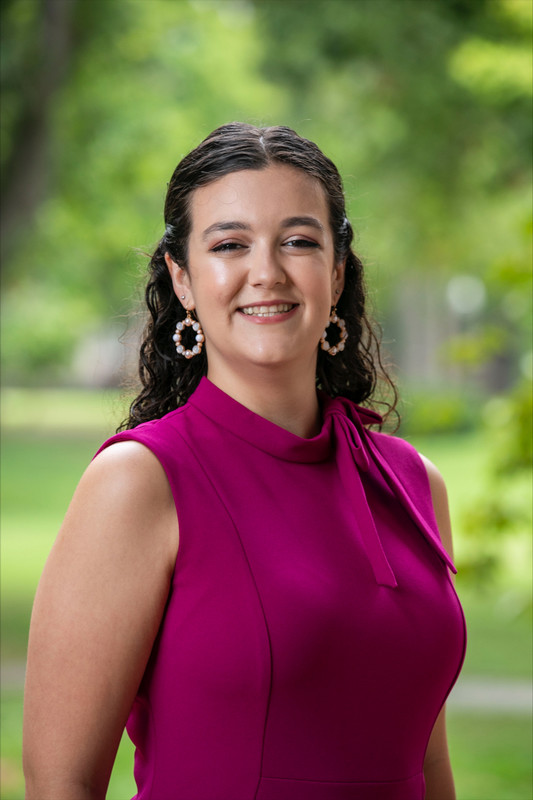Paige Gonzales: Accountability, Behavior, and Conflict in Democratic Politics Research Experience for Undergraduates

For most college students, the ideal summer break features either an internship or lounging somewhere sunny. Yet if you’d told me that my summer would be spent in Nashville, Tennessee doing cutting-edge political science research and ending with a national conference presentation opportunity—I wouldn't have believed you.
Yet, that was my reality this summer. I was selected as one of twelve students to participate in the NSF-funded Accountability, Behavior, and Conflict in Democratic Politics Research Experience for Undergraduates (REU), hosted at Vanderbilt University. The program combined graduate-level courses, career panels, a research assistantship, and an individual research project into an eight-week immersion in the world of political science.
The program was directed by three acclaimed political science scholars and two graduate students: Dr. Elizabeth Zechmeister, Dr. Emily Ritter, Dr. Sharice Thrower, Alec Tripp, and Jennifer Barnes. They, along with other faculty mentors, taught graduate-level courses that equipped us with essential skills in statistics, coding, and academic writing, while also demystifying the graduate school experience.
As a first-generation student, pursuing an undergraduate degree at Purdue University has been a journey filled with questions and moments of self-doubt. The dream of graduate school or pursuing a PhD felt like a distant hope, and the reality of getting into graduate school, or what to expect if I got in, was even more daunting.
Yet, this REU opened doors to possibilities, equipped me with information, and provided the confidence I needed.
During the program, I had the privilege of working as a research assistant to Dr. David Lewis, a professor of political science at Vanderbilt. Initially, I was intimidated by the idea of working closely with someone whose work I had studied in class. However, meeting Dr. Lewis in person transformed my view of academia. Our relationship became more than just transactional; it evolved into a lasting mentorship that continues to support my academic journey.
Throughout the program, I contributed to Dr. Lewis’s research on bureaucratic innovation by collecting and analyzing data from federal surveys and databases. This hands-on experience not only allowed me to contribute to ongoing research but also helped solidify my own research interests.
Under his mentorship, I was not only able to contribute to future research and scholarship in the discipline but build an invaluable mentor relationship I continue to foster and rely upon.
Further, with the help of the cohort, Dr. Lewis, and the co-director team, I developed my own individual research project. I was granted access to the Correlates of State Policy Project to explore state-level policy data and with it, the freedom to ask and answer whatever question I could come up with. After a few weeks of reading, seeking advice, and waiting for inspiration to strike, I found my research question: Does partisanship predict the choice to enact punitive burden-focused policy designs?
I combined my knowledge and passion for policy making, communication, and the influence of party politics into one, quantitative research project. After weeks of research and analysis, I found that partisanship does in fact influence the likelihood to impose policy burdens—but doesn’t find as large of a gap as existing research predicted. With these findings, I produced a 20-page research paper as well as a formal research poster that I presented to Vanderbilt faculty and graduate students at the end of the program.
However, the pinnacle of this experience has yet to come. Thanks to the support of the National Science Foundation, I am presenting my research at the American Political Science Association’s annual conference in Philadelphia—a rare and exciting opportunity for an undergraduate. The chance to showcase my work and network with leading academics is a milestone I never imagined reaching (let alone as an undergraduate).
At the start of this year, I was a first-generation rising junior still uncertain about my future in political science. Now, thanks to this REU and the incredible mentors and peers I worked with, I can confidently say that research ignites a passion within me. Graduate school is no longer a pipedream, but instead a plan. One I am declaring and aim to pursue with confidence. And, who knows? Maybe "Dr. Paige Gonzales" has a nice ring to it after all.